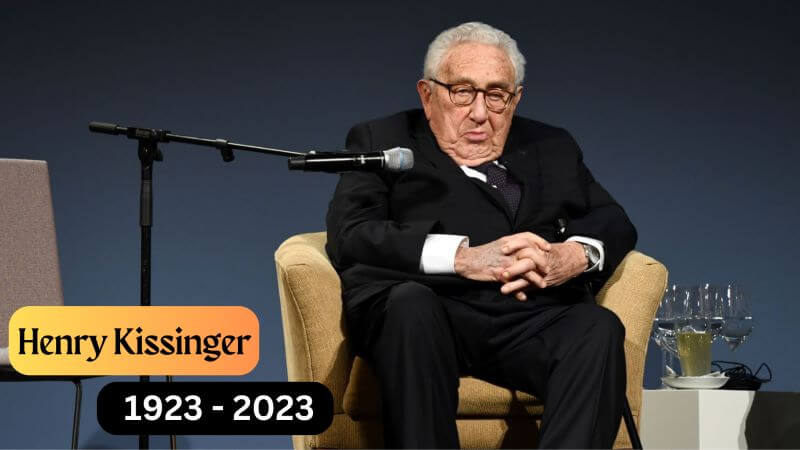A year ago, I had the privilege of attending a conference at Ditchley Park, an elegant estate in Oxfordshire, England, renowned as the backdrop for the residence of the Foreign Secretary in Netflix's 'The Diplomat.'
During my visit, I was allocated to the 'Henry Kissinger room,' a space where the distinguished diplomat once engaged in discussions on nuclear deterrence with former Secretary of State Dean Acheson in 1963.
Taking a moment to peruse a framed letter authored by Kissinger on the room's wall, I couldn't help but contemplate the significant and enduring impact left by this esteemed statesman.
Several biographies have delved into the life of Henry Kissinger, presenting a diverse range of viewpoints. Whether through laudatory assessments or pointed criticisms that include allegations of war crimes, these narratives are sure to populate numerous opinion pieces and eulogies in the upcoming days and weeks.
Among these, one of the most captivating reads has been Niall Ferguson's 'Kissinger: 1923-1968: The Idealist.' This biography, focusing on a period of Kissinger's life before he stepped into the role that would define him for many, challenges the commonly held view of him as the epitome of political and diplomatic pragmatism. It suggests that, at his core, he may have been more of a 'pragmatic idealist.'
Irrespective of personal sentiments towards him, there are undoubtedly lessons to be extracted from his pragmatic diplomatic approach. One particular lesson that I have sought to integrate into my advocacy is his advice to engage with a broad spectrum of stakeholders and personalities from all perspectives on an issue or debate.
While visiting a country or state, this principle can be expanded to include outreach to opposition parties and legislators. Given that opposition figures often have more flexibility in their schedules than those in government, making time to meet with them can be valuable. Such engagements can foster goodwill, which may be remembered if these individuals assume positions of power in the future.
It is logical to assert that individuals tend to remember those who express interest in them during difficult periods rather than those who engage only when they are flourishing. Involving oneself with opposition parties and legislators facilitates more profound interactions, establishing a foundation for enduring relationships built on the goodwill extended towards individuals and their causes.
This strategy aligns with modern analysis, echoing the concept of Binary Bias put forth by organizational psychologist Adam Grant. Grant suggests that people often perceive the world in simplistic terms, neglecting its nuanced nature and the existence of shades of grey.
When applied to diplomacy and advocacy, the inclination toward 'binary bias' can lead to a hesitancy to collaborate with those seen as adversaries, hindering the exploration of potential common ground. If taken to extremes, this aversion may obstruct the potential for a positive impact on shared issues that both parties genuinely care about.
Throughout my advocacy journey spanning over a decade, I have actively sought to cultivate relationships with members of both opposition and government parties. I make a conscious effort to engage with individuals across diverse political spectrums, not limiting my interactions solely to those in positions of power.
This constitutes a deliberate initiative to cultivate bipartisan support for the causes I champion. Such an approach proves especially effective in parliamentary democracies where opposition members frequently maintain their parliamentary seats even after exiting government, holding the potential to return to governing positions in the future.
For Global Citizen's advocated causes, spanning from polio eradication to assisting smallholder farmers confronting the climate crisis, this approach has proven crucial in sustaining continuous support even amidst changes in government, which are inevitable over time.
Back to Home
At a minimum, opposition figures can play a pivotal role in holding governments accountable for the promises they have put forward.


Tulsimeshram
ReplyDeleteTulsimeshram